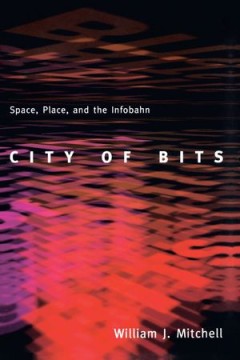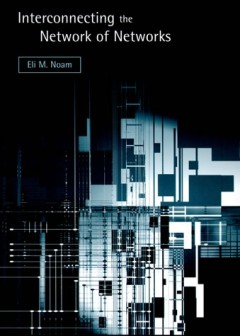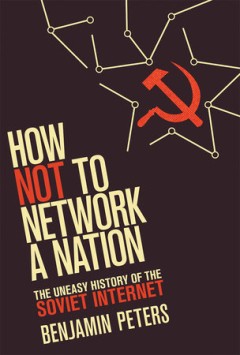Filter by

City of Bits : Space, Place, and the Infobahn
Entertaining, concise, and relentlessly probing, City of Bits is a comprehensive introduction to a new type of city, an increasingly important system of virtual spaces interconnected by the information superhighway. William Mitchell makes extensive use of practical examples and illustrations in a technically well-grounded yet accessible examination of architecture and urbanism in the context of…
- Edition
- -
- ISBN/ISSN
- 9780262279956
- Collation
- -
- Series Title
- -
- Call Number
- 720 MIT c

Social engineering :how crowdmasters, phreaks, hackers, and trolls created a …
"From the phone phreaks of the 1970s to Anonymous, how how hackers deploy persuasion, helpfulness, manipulation, and deception to gain access to sensitive information"--OCLC-licensed vendor bibliographic record.
- Edition
- -
- ISBN/ISSN
- 0262368927
- Collation
- 1 online resource.
- Series Title
- -
- Call Number
- -

Interconnecting the network of networks
This book describes the transformation of telecommunications from national network monopolies to a new system, the "network of networks," and the glue that holds it together, interconnection. By their very nature, monopoly-owned networks provided a small number of standardized, nationwide services. Over the past two decades, however, new forces in the world economy began to unravel this traditi…
- Edition
- -
- ISBN/ISSN
- 9780262280693
- Collation
- 1 online resource (ix, 318 pages) :i llustrations
- Series Title
- -
- Call Number
- 005 NOA i

Regulating Code: Good Governance and Better Regulation in the Information Age
The case for a smarter “prosumer law” approach to Internet regulation that would better protect online innovation, public safety, and fundamental democratic rights. Internet use has become ubiquitous in the past two decades, but governments, legislators, and their regulatory agencies have struggled to keep up with the rapidly changing Internet technologies and uses. In this groundbreakin…
- Edition
- -
- ISBN/ISSN
- 9780262312943
- Collation
- -
- Series Title
- -
- Call Number
- -

How not to network a nation : the uneasy history of the Soviet internet
"Between 1959 and 1989, Soviet scientists and officials made numerous attempts to network their nation -- to construct a nationwide computer network. None of these attempts succeeded, and the enterprise had been abandoned by the time the Soviet Union fell apart. Meanwhile, ARPANET, the American precursor to the Internet, went online in 1969. Why did the Soviet network, with top-level scientists…
- Edition
- -
- ISBN/ISSN
- 9780262334198
- Collation
- 1 online resource (xiii, 298 pages) :illustrations, maps.
- Series Title
- -
- Call Number
- -

International relations in the cyber age :the co-evolution dilemma
A foundational analysis of the co-evolution of the internet and international relations, examining resultant challenges for individuals, organizations, firms, and states. In our increasingly digital world, data flows define the international landscape as much as the flow of materials and people. How is cyberspace shaping international relations, and how are international relations shaping cyber…
- Edition
- -
- ISBN/ISSN
- 9780262349710
- Collation
- 1 online resource (432 pages)
- Series Title
- -
- Call Number
- -

An aesthesia of networks :conjunctive experience in art and technology
"Today almost every aspect of life for which data exists can be rendered as a network. Financial data, social networks, biological ecologies: all are visualized in links and nodes, lines connecting dots. A network visualization of a corporate infrastructure could look remarkably similar to that of a terrorist organization. In An Aesthesia of Networks, Anna Munster argues that this uniformity ha…
- Edition
- -
- ISBN/ISSN
- 9780262313506
- Collation
- 1 online resource.
- Series Title
- -
- Call Number
- -

The weakest link :how to diagnose, detect, and defend users from phishing
"This book provides a paradigm changing approach for protecting organizational email users from falling prey to social engineering"--OCLC-licensed vendor bibliographic record.
- Edition
- -
- ISBN/ISSN
- 9780262371971
- Collation
- 1 online resource
- Series Title
- -
- Call Number
- -

New solutions for cybersecurity
Experts from MIT explore recent advances in cybersecurity, bringing together management, technical, and sociological perspectives.OCLC-licensed vendor bibliographic record.
- Edition
- -
- ISBN/ISSN
- 9780262346641
- Collation
- 1 online resource.
- Series Title
- -
- Call Number
- -

Designing an internet
Why the Internet was designed to be the way it is, and how it could be different, now and in the future. How do you design an internet The architecture of the current Internet is the product of basic design decisions made early in its history. What would an internet look like if it were designed, today, from the ground up In this book, MIT computer scientist David Clark explains how the Interne…
- Edition
- -
- ISBN/ISSN
- 9780262348508
- Collation
- 1 online resource (432 pages).
- Series Title
- -
- Call Number
- -
 Computer Science, Information & General Works
Computer Science, Information & General Works  Philosophy & Psychology
Philosophy & Psychology  Religion
Religion  Social Sciences
Social Sciences  Language
Language  Pure Science
Pure Science  Applied Sciences
Applied Sciences  Art & Recreation
Art & Recreation  Literature
Literature  History & Geography
History & Geography